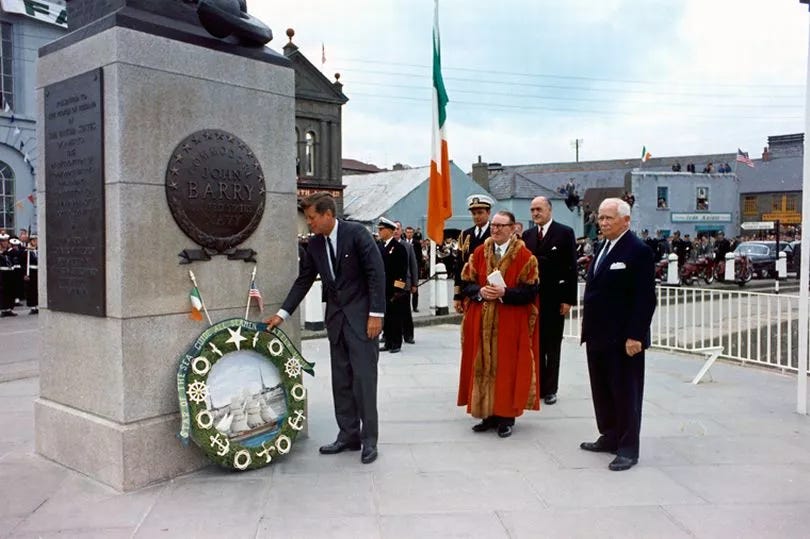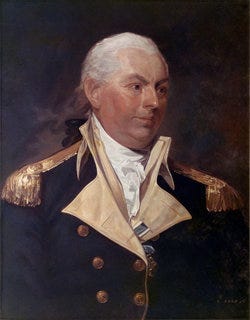
“Few Americans are well-acquainted with the gallantry and heroic exploits of Philadelphia's Irish-born naval commander, Commodore John Barry.”
So begins Barry’s biographical sketch on the website USHistory.org where I learned that when Barry (1745-1803) came to the States he chose Philadelphia for his home because “William Penn's legacy of religious freedom allowed Roman Catholics, which Barry was, greater latitude of worship than most anywhere else in the Colonies.”
As for his gallantry and heroics:
“In the space of 58 years, this son of a poor Irish farmer rose from humble cabin boy to senior commander of the entire United States fleet. Intrepid In battle, he was humane to his men as well as adversaries and prisoners. Barry's war contributions are unparalleled: he was the first to capture a British war vessel on the high seas; he captured two British ships after being severely wounded in a ferocious sea battle; he quelled three mutinies; he fought on land at the Battles of Trenton and Princeton; he captured over 20 ships including an armed British schooner in the lower Delaware; he authored a Signal Book which established a set of signals used for effective communication between ships; and he fought the last naval battle of the American Revolution aboard the frigate Alliance in 1783.”
The title “Father of the American Navy” is not a modern invention but was bestowed on him by his contemporaries:
“On February 22, 1797, President Washington called Barry to the President's Mansion at 190 High (Market) Street, to receive Commission Number One in the Navy which was dated June 4, 1794, the date of his original selection. The formal ceremony took place on Washington's birthday. Barry outfitted and supervised the construction of the first frigates built under the Naval Act of March 27, 1794, including his own forty-four gun frigate the USS United States, which was to serve as his flagship. The United States slid into the water on May 10, 1797, under Barry's helm.”
The American Catholic Historical Society (ACHS), headquartered in Philadelphia, annually bestows the Commodore John Barry Award. Candidate qualifications read in part, “…to any American who, by their character and their contributions to the church, the community and professional accomplishments, has distinguished themself.” Barry’s gravesite is in the graveyard of Old St. Mary’s Church, across the street from the ACHS headquarters.




